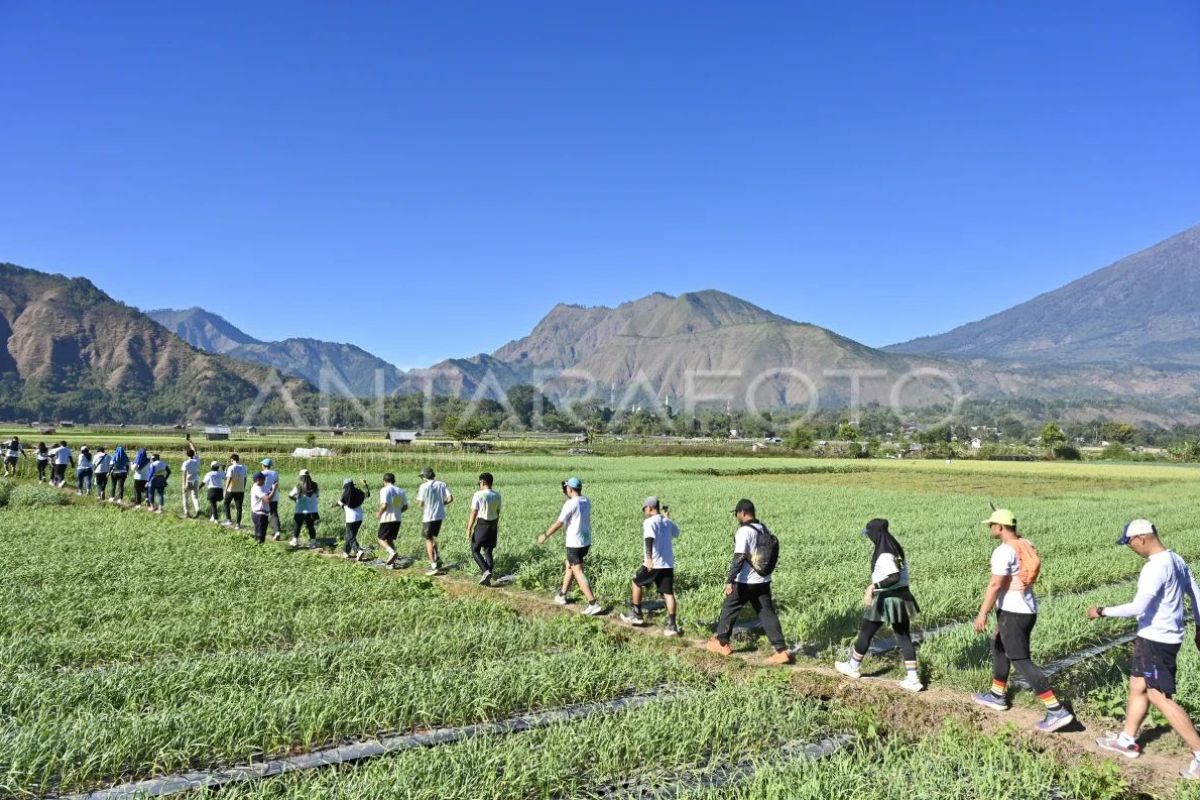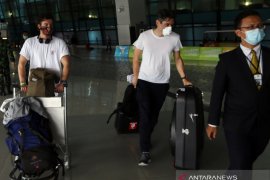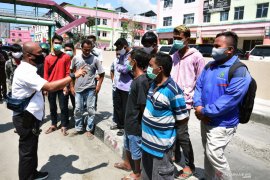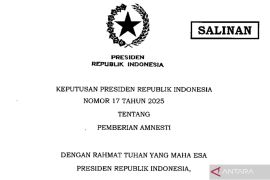The wave of demonstrations across Indonesia in the last week of August has left an uneasy impression on the international community.
Several incidents, including arson and looting in Jakarta, the destruction of public facilities and the Regional People's Representative Council (DPRD) building in Makassar, the burning of the West Nusa Tenggara (NTB) DPRD building, clashes between protesters and security forces in Surabaya, and the tragic death of an online motorcycle taxi driver after being run over by a police armored vehicle, drew significant coverage from foreign media.
A number of countries, including the United States, Malaysia, Singapore, France, Japan, the Philippines, the United Kingdom, and Canada, issued travel warnings for their citizens living in or planning to visit Indonesia.
Travel warnings are precautionary advisories commonly issued by governments to protect their citizens abroad. They are not travel bans but rather recommendations to remain alert to potential risks. In practice, however, such warnings often carry a psychological weight that exceeds their actual substance.
For the international public, these advisories can create a worrying image of Indonesia: a nation in turmoil, full of threats, and unsafe for visitors. Yet, on the ground, conditions are far less alarming.
Daily life continues, tourist destinations remain lively, and social harmony is maintained in many areas. This contrast highlights the challenge of addressing global stigma while presenting the reality of Indonesia as safe, friendly, and welcoming to visitors from around the world.
West Nusa Tenggara (NTB) Province offers one clear example. Despite national media reports highlighting the escalation of demonstrations, the province continues to project itself as a welcoming and conducive destination for tourism.
While some international outlets describe Indonesia as chaotic, NTB positions itself as an oasis of calm. Tourist sites such as Mandalika, Sembalun, and Gili Trawangan remain active and vibrant, unaffected by political tensions in urban centers.
NTB Governor Lalu Muhamad Iqbal noted that the people of NTB have responded to national political dynamics with maturity. He explained that a deeply rooted culture of dialogue and mutual cooperation enables the community to effectively manage potential frictions.
He also emphasized that the travel warnings issued by several countries should not be interpreted excessively. Iqbal compared them to a parent's message to a child before a trip: a simple reminder to be cautious, not a prohibition.
This, he said, reflects the region’s security and readiness to welcome tourists. The warmth of the people, reliable tourism infrastructure, and strong support from the local government together reinforce NTB’s competitive edge in the eyes of both domestic and international travelers.
Understanding Travel Warnings
Travel warnings are often perceived as exaggerated. However, they differ significantly from travel bans. In diplomatic terms, a travel warning serves as an early alert, urging tourists to remain cautious and stay informed about developments in the destination country.
Indonesia’s challenge goes beyond technical security concerns and touches on global perception. Each riot covered by foreign media risks stigmatizing the country as unstable.
In reality, mass demonstrations are part of democratic life. The United States and France have also witnessed large, sometimes violent protests, yet these do not automatically undermine their reputation for safety and stability among international tourists.
This highlights the need for an effective public communication strategy. Both central and regional governments must present a counter-narrative that frames riots as sporadic events while stressing that daily community life continues as usual.
NTB Province has taken proactive steps by circulating videos of foreign tourists walking freely in Mataram City. This effort has proven effective in easing public concerns.
NTB also stands as a concrete example of Indonesia’s peaceful side. Although the DPRD building was burned during the demonstration, the situation was swiftly brought under control. No major disruptions affected tourism activities in Lombok or Sumbawa. Hotels remained open, flights operated as scheduled, and visitors continued to enjoy tourist destinations
The province’s greatest strength lies in its people’s tradition of welcoming guests. Local customs such as begawe (communal gatherings) and merariq (wedding traditions) are shared with genuine warmth. This spirit of hospitality is an important form of social capital in supporting tourism.
In the long run, NTB can serve as a model for other regions in managing their public image amid negative portrayals. The message is clear: disturbances may occur anywhere, but tourism remains safe and well-managed.
Three-layer Strategy
To prevent travel warnings from casting a shadow over Indonesia’s image, three layers approaches can be taken.
The first involves crisis communication. Central and regional governments must establish responsive crisis communication centers. Whenever a travel warning is issued, an immediate official clarification should follow, highlighting the actual situation on the ground. This clarification should not only be in text form but also visual, such as videos showing tourists continuing their activities as usual.
The second approach focuses on tourism diplomacy. Indonesian embassies in countries issuing travel warnings should proactively communicate real conditions.
Tourism diplomacy can be carried out through direct dialogue with travel associations, tour operators, and foreign media. NTB can be presented as a case study demonstrating that Indonesian destinations remain safe.
The third approach emphasizes community empowerment. At the local level, communities must be encouraged to act as ambassadors of hospitality.
Every NTB resident who interacts with tourists, from taxi drivers and small traders to hotel managers, represents Indonesia’s image at the global level. The friendlier the service, the faster the negative perception will fade.
Travel warnings ultimately serve as a test of trust. If Indonesia responds inadequately, the warnings could evolve into travel bans. But if handled well, they provide an opportunity to showcase Indonesia’s readiness to ensure the safety and comfort of tourists.
From a broader perspective, presenting a welcoming face to the world is part of safeguarding Indonesia’s dignity. Each tourist who returns home with a positive experience becomes an informal ambassador who carries Indonesia’s image abroad.
Travel warnings are merely precautionary signals, not reflections of reality. NTB has shown that even amid political tensions, tourism can continue safely. The next challenge is ensuring all Indonesian regions project the same image: friendly, safe, and reliable.
Indonesia must not be overshadowed by stigma. With effective communication, active tourism diplomacy, and consistent community engagement, negative perceptions will fade.
The world will see Indonesia as it truly is: a land of smiles, rich in natural beauty and human warmth.
Related news: Vice President opens 2025 Pacu Jalur Festival in Kuansing, Riau
Editor: Primayanti
Copyright © ANTARA 2025









